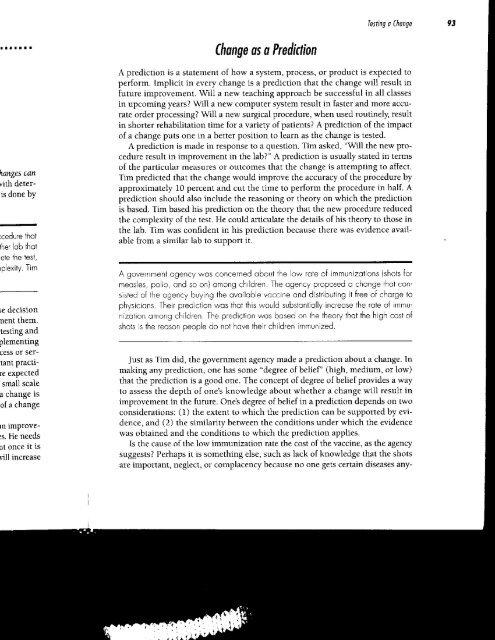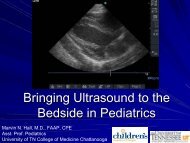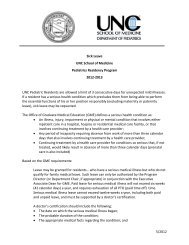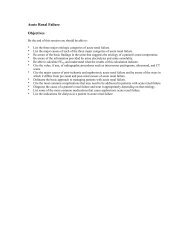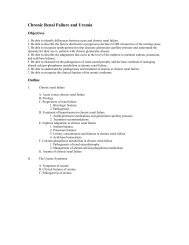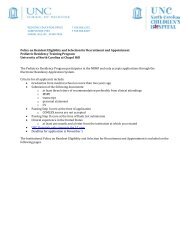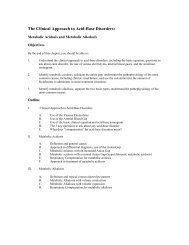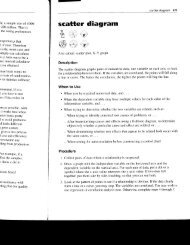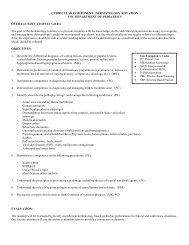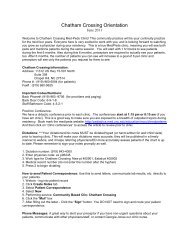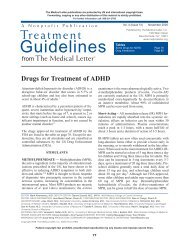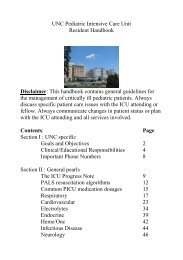Chapter 6
Chapter 6
Chapter 6
- No tags were found...
Create successful ePaper yourself
Turn your PDF publications into a flip-book with our unique Google optimized e-Paper software.
lesfing o [hmge 93(hange ss a Predktionhatges canvith deterisdone byredure lhoither lob thotele lhe test,rplexily. Tim;e decisionnent them.rcsting andplementingcess or sertantpracureexpectedsmall scalea change isof a changeln improve-:s, He needsnt once it isvill increaseA prediction is a statement of how a system, process, or product is expected toperform. Implicit in every change is a prediction that the change will result infuture improvement. Will a new teaching approach be successful in all classesin upcoming years? Will a new computer system result in faster and more accurateorder processing? Will a new surgrcal procedure, when used routinely, resultin shorter rehabilitation time for a variety ofpatients? A prcdiction of the impactof a change puts one in a better position to learn as the change is tested.A predictlon is made in response to a question. Tim asked, "Will the new procedureresult in improvement in the 1ab?" A predictlon is usually stated in termsof the particular measures or outcomes that the change is attempting to affect.Tim predicted that the change would improve the accuracy of the procedure byapproximately 10 percent and cut the time to perform the procedure in half. Aprediction should also include the reasoning or theory on which the predictionis based. Tim based hls prediction on the theory that the new procedure reducedthe complexity of the test. He could articulate the details ofhis theory to those inthe lab. Tim was confident in his prediction because there was evidence availablefrom a similar lab lo suDDorl it.A goveinmenl ogency wos concerned obout ihe ow role of immunizotions (shots formeos es, po io, ond so on) omong children. The ogency pioposed o chonge thot conslstedof the ogency buylng the ovoilob e voccine ond distribuiing it free of chorge tophysicions. Their prediciion wos ihot ihis would substonliolly increose the rote of immunizotionomong children. The prediction wos bosed on the theory thot the high cost ofshots is ihe reoson oeoole do nof hove their chidren immunized.Just as Tim did, the government agency made a prediction about a change. Inmaking any prediction, one has some "degree of belief' (high, medium, or low)that the prediction is a good one. The concept of degree of belief provides a wayto assess the depth of one's knowledge about whether a change will result inimprovement in the future. One's degree of belief in a prediction depends on twoconsiderations: (1) the extent to which the predlction can be supported by evidence,and (2) the similarity between the conditions under which the evidencewas obtained and the conditions to which the prediction applies.Is the cause of the low immunization rate the cost of the vaccine, as the agencysuggests? Perhaps it is something else, such as lack of knowledge that the shotsare important, neglect, or complacency because no one geG certain diseases any-


